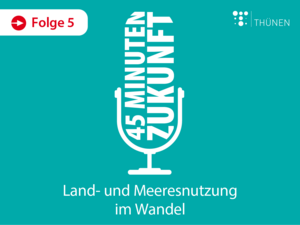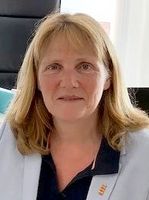
Climate change, fishing closures, Brexit, red tape, competition for space, an outdated fleet and the image as destroyer of the environment pose an existential challenge to the fishing industry. On the other hand, coastal fishing is positively connotated as a sustainable, artisanal activity. Which path should be taken in order to give coastal fishing a future?
"In 15 to 20 years, we will have very different fishermen compared to today. They also develop further and are exposed to all social influences. We have to incorporate that too."
Hilke Looden, Mayor of the municipality of Krummhörn
For many years, German coastal fisheries lacked a strategy on how to shape the transition to the future under the impact of various crises. With the project "Future Workshop Coastal Fisheries 2045", the Thünen Institute is contributing to the development of a strategy. It gathers stakeholders from fisheries, local politics, trade, science, tourism, recreational fishing, nature conservation and marine spatial planning to develop future visions for German coastal fisheries. Together with scientists, they are investigating what the goal of such a transformation process should be: Preservation of professional fishing? Only part-time fishing? Or no more fishing at all? And what is the role of the government in this process?
In this podcast episode, our guests Hilke Looden, mayor of the North Sea municipality of Krummhörn, and Christopher Zimmermann, director of the Thünen Institute of Baltic Sea Fisheries, look at the current situation in the North Sea and Baltic Sea from a practitioner's and a scientist's perspective and to look ahead.
Sources and further readings
- Think Tank Coastal Fisheries 2045
- Radio Feature on the Think Tank Coastal Fisheries (in German)
- Structural Change Coastal Fisheries

Hilke Looden is mayor of the North Sea municipality of Krummhörn. Her municipality is home to the largest German port for German coastal fishing in the North Sea. Her family has been involved in shrimp fishing for generations. As a fisheries expert, she advised the Lower Saxony Chamber of Agriculture for many years.
![[Translate to English:] Portraitfoto Christopher Zimmermann](/media/_processed_/1/a/csm_CZimmermann_Foto_Joshua_Osborne_4a968c4623.jpeg)
Dr. Christopher Zimmermann is head the Thünen Institute of Baltic Sea Fisheries. Educated as fisheries biologist, he represents Germany on the Advisory Committee of the International Council for the Exploration of the Sea, where he works, among other things, on the annual scientific recommendations for fisheries management to the EU. In addition to sustainable fishing, the future of coastal fisheries is one of his main topics.






Comments (0)
No comments found!